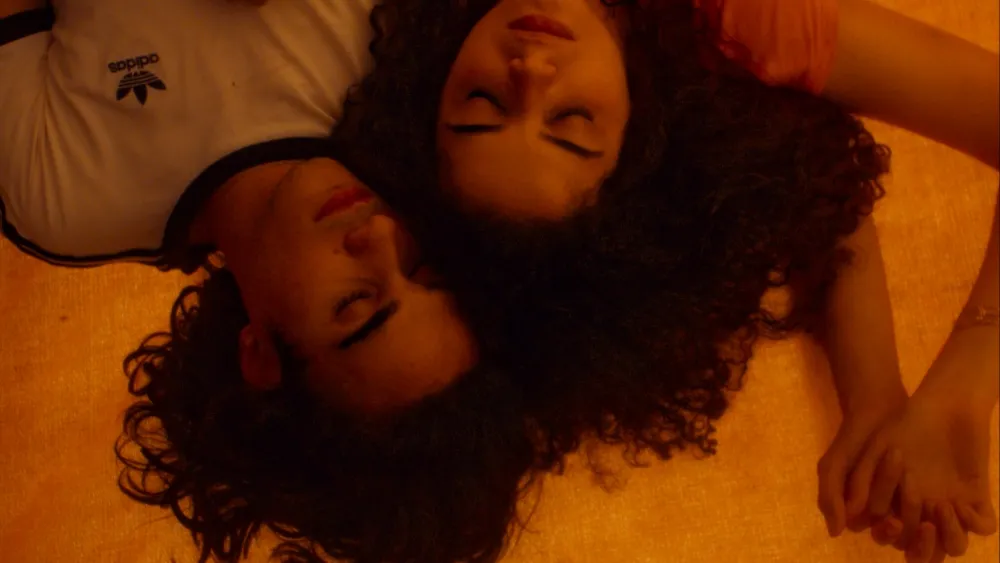The Silent Run
L'enfant bélier
VERDICT: In 'The Silent Run', Marta Bergman’s reconstruction of a tragic true story about a young migrant family trying to enter England from Belgium carves out its niche in the familiar European genre by shifting viewpoints between the determined, frightened refugees and the police whose job it is to stop them.
For well over a decade festival audiences have been absorbing the upheaval and tragedy of mass migration through the lens of filmed dramas. There have been some notable high points – the wrenching physicality of Haider Rashid’s border crossing in Europa; Matteo Garrone’s unforgettable African adventure I, Captain; two sisters escaping war-torn Syria for Rio in Sally El Hosaini’s The Swimmers — that have transcended the genre with their imaginative narratives, but in general evolution has been slow. This is the context in which The Silent Run appears, proposing the novelty of a dual perspective – the police’s as well as the migrants’ – on a tragic true story.
The Belgian-Canadian production will get a boost in the right direction with its bow in competition at the Cairo film festival, where its original perspective on the displaced persons crisis should get noticed and discussed.
Writer-director Marta Bergman had long experience in the documentary field before breaking into fiction with her 2019 Alone at my Wedding. Her approach to the story of the young couple Sara (actress Zbeida Belhajamor) and Adam (newcomer Abdal Razak Alsweha) and their two-year-old daughter Klara is rigorously alternated with the drama of veteran police detective Redouine (Salim Kechiouche), who loses his head in the heat of a chase and fires a fatal, totally unnecessary shot. Adding to the complicating layers is his ambiguous status as a cop of Arab background – ironically, just the profile the force is looking to promote. How all the ethnic pieces of the puzzle come together in the final scenes is a good part of the film’s fascination.
The backstory of Sara and Adam, who are very much in love, is hinted at when Sara, who is Tunisian, rejects the idea of going back to Syria to live, on the basis that their beloved Klara would be shunned as a bastard. Adam, much more sensitive and unsure of himself, lets Sara’s stronger personality lead him. After camping in a cramped tent in the Belgian countryside, they take their chances with two unreliable human traffickers who have a van. As they crisscross the motorways at night, they don’t realize they are being electronically tracked on police monitors. Patrol cars are dispatched when the controller detects “suspicious activity”, though what trips the alarm in this case is unclear. The tension rises palpably onscreen inside the crowded van as sirens are heard, followed by the dreaded warning to pull over.
Instead, the van’s terrified driver accelerates as the police vehicle gives chase. Choreographed simply but effectively, this nocturnal chase scene packs a punch. The stakes are raised when the smugglers demand Adam and Sara show baby Klara to the cops through a broken rear window, triggering “baby on board” protocols, all while the two cars race at high speed. It is at this point that Redouine pulls out his gun and arms it.
In the aftermath, as an ambulance whisks the victim away and the police commissioner appears on the scene like a biblical judge, ready to launch an investigation into Redouine’s behavior, the most striking thing for a contemporary audience is the vast void that has grown in police ethics and morality around the world. The contrast between these Belgians who instantly advise Redouine to get lawyered up and the free reign given to their American colleagues in ICE and Border Patrol is a glaring challenge to comprehend. And yet, in the end, the law enforcers’ close-an-eye, I’ve-got-your back similarities do emerge, adding one more layer to the film’s sobering narrative. In the end, it’s always the immigrant’s fault.
Director: Marta Bergman
Screenplay: Marta Bergman with Camille Mol, Ely Chevillot, Sacha Ferbus
Cast: Zbeida Belhajamor, Abdal Razak Alsweha, Salim Kechiouche, Lucie Debay, Michael Abiteboul, Yoann Zimmer, Isabelle de Hertogh, Marie Denamaud
Producers: Cassandre Warnauts, Jean-Yves Roubin, Geneviève Lavoie, Richard Angers
Cinematography: Noé Bach AFC
Production design: Samuel Charbonnot
Costume design: Claudine Tychon
Editing: Frédéric Fichefet
Music: Michel Corriveau
Sound: Simon Poudrette, Sylvain Bellemare, Hans Laitres
Production companies: Frakas Productions (Belgium), Années Lumière Films (Canada), RTBF
World sales: B-Rated International
Venue: Cairo Intl. Film Festival (competition)
In Arabic, French, English
95 minutes

